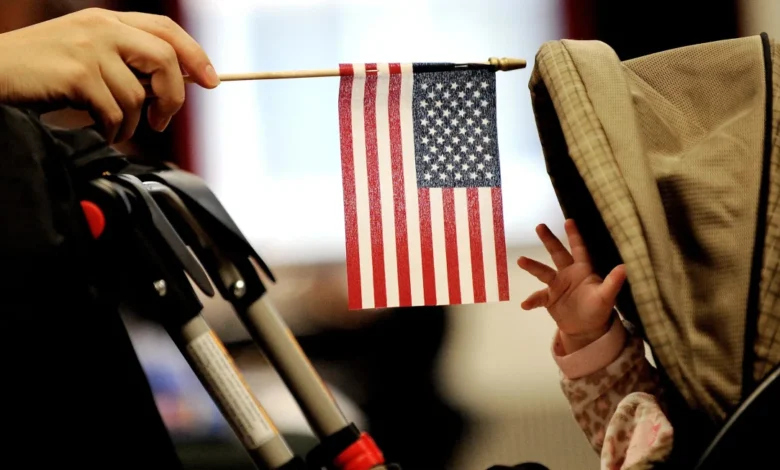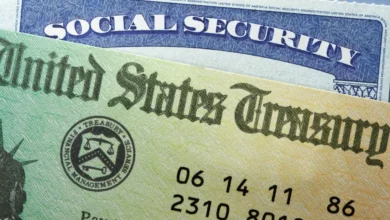
Why the US Has Birthright Citizenship and How Trump Could Challenge It
nexnews – Birthright citizenship is a cornerstone of U.S. law, guaranteeing that anyone born on American soil is automatically a U.S. citizen. This principle, enshrined in the 14th Amendment, was established in the aftermath of the Civil War to ensure that the descendants of formerly enslaved people were granted full citizenship rights. However, President-elect Donald Trump has repeatedly criticized the policy and pledged to challenge it during his second term in office, raising questions about its future in American law.
Trump’s Challenge to Birthright Citizenship
During his 2024 presidential campaign, Trump promised that, on Day One of his second term, he would issue an executive order aimed at ending birthright citizenship for the children of undocumented immigrants. Trump’s position on this issue has been a key part of his political platform, which seeks to reduce immigration and limit the rights of individuals living in the U.S. without legal status.
In a campaign video, Trump argued that birthright citizenship is “based on a historical myth” and that the law has been misinterpreted for over a century. He suggested that his executive order would “make clear to federal agencies” that children of illegal aliens would not be automatically granted U.S. citizenship. He also hinted at the possibility of legal actions like stopping the issuance of passports for such children, which could spark a constitutional showdown.
The 14th Amendment and Birthright Citizenship
The 14th Amendment, ratified in 1868, explicitly states that “all persons born or naturalized in the United States, and subject to the jurisdiction thereof, are citizens of the United States.” This language has long been interpreted as granting automatic citizenship to anyone born in the U.S., regardless of the immigration status of their parents. The amendment was part of the post-Civil War reconstruction efforts to ensure that the newly freed African Americans were recognized as full citizens.
However, critics of birthright citizenship, including Trump and legal theorists like John Eastman, argue that the phrase “subject to the jurisdiction thereof” excludes children born to undocumented immigrants. Eastman and others claim that Congress could pass a law to prevent such children from gaining citizenship, but this theory has been largely dismissed by legal scholars and courts.
The Historical Context of Birthright Citizenship
The principle of birthright citizenship has its roots in the Dred Scott decision of 1857, where the U.S. Supreme Court ruled that Black people, whether free or enslaved, could not be U.S. citizens. This decision was later overturned by the 13th Amendment, which abolished slavery, and the 14th Amendment, which guaranteed citizenship to anyone born on U.S. soil. The Supreme Court reinforced this interpretation in the landmark 1898 Wong Kim Ark case, where it ruled that children born in the U.S. to Chinese immigrants were entitled to U.S. citizenship.
While some conservative legal voices, like Judge James Ho, have questioned whether birthright citizenship should apply in the case of an “invasion” or war, the legal precedent remains clear. The Supreme Court has consistently upheld birthright citizenship as a fundamental principle, including in Wong Kim Ark.
Could Trump Alter Birthright Citizenship Through Executive Order?
While Trump’s executive order could attempt to reinterpret the law, it’s important to note that constitutional amendments are the proper means of changing such a significant provision. However, amending the Constitution is a complex and difficult process that requires significant political support.
For Trump to achieve his goal, he would likely need to pass new legislation through Congress or push for a constitutional amendment, which would require a two-thirds majority in both chambers of Congress and ratification by three-fourths of state legislatures. Given the political challenges involved, Trump’s legal strategy may focus on other avenues, such as targeting the issuance of passports and enforcement of immigration laws.
The Future of Birthright Citizenship
The issue of birthright citizenship is deeply tied to the broader debate over immigration and national sovereignty. While Trump and his allies argue that the policy is being misused and should be revised, opponents contend that any change would undermine core constitutional protections and the country’s commitment to equality under the law.
As Trump prepares to take office again, the challenge to birthright citizenship is likely to remain a contentious issue in U.S. politics. Whether through executive action, legislative efforts, or judicial rulings, the future of this fundamental principle may soon be tested in the courts. For now, the battle over birthright citizenship continues to be a key part of the broader debate on immigration and national identity.





